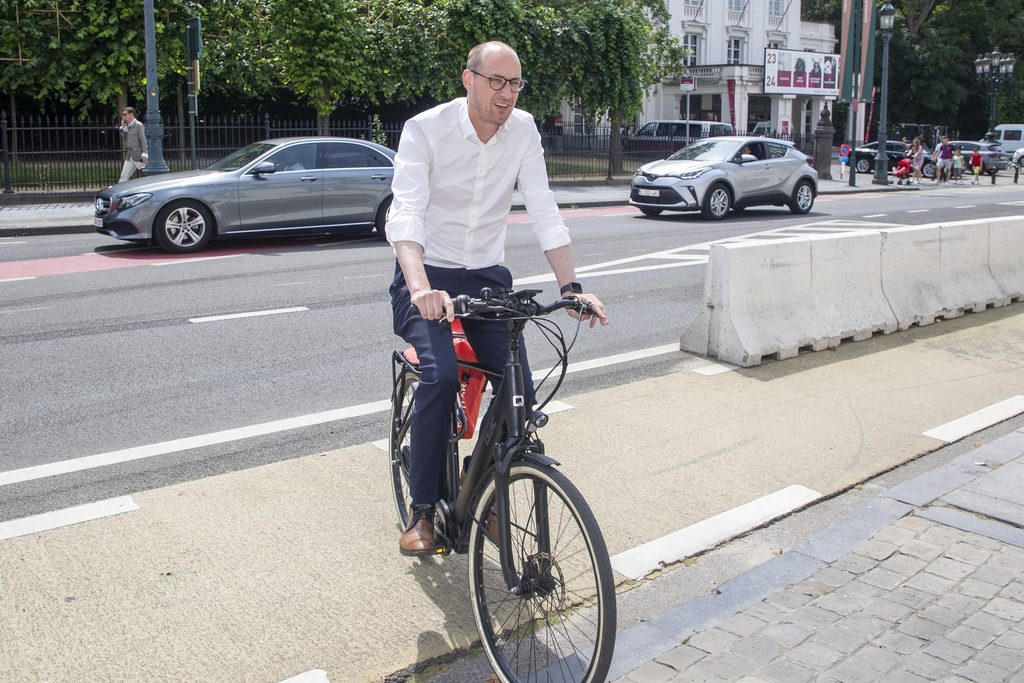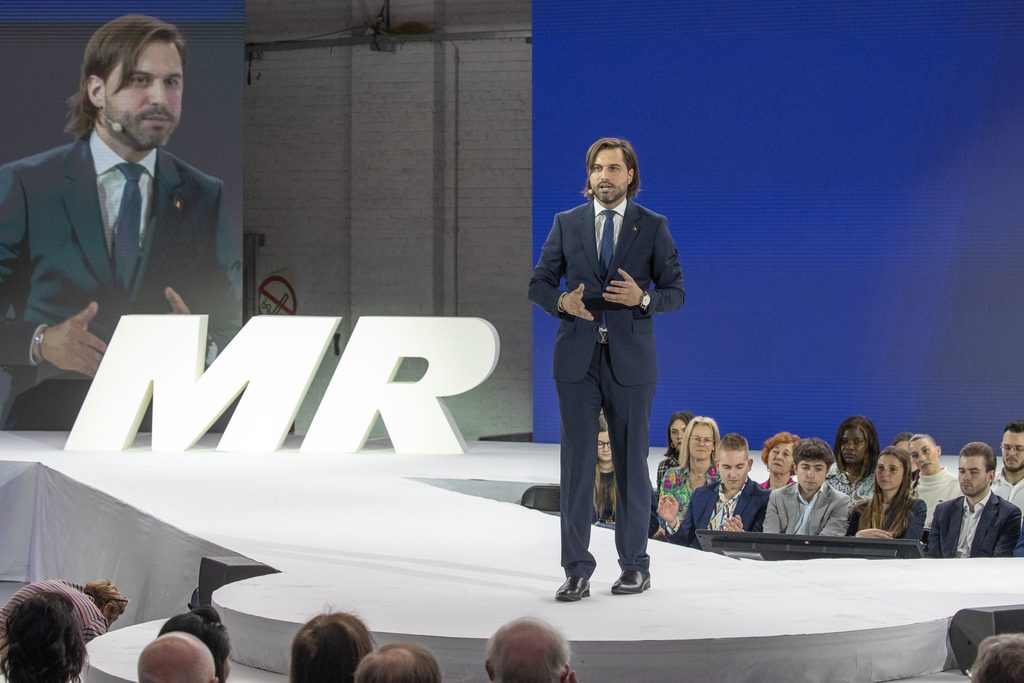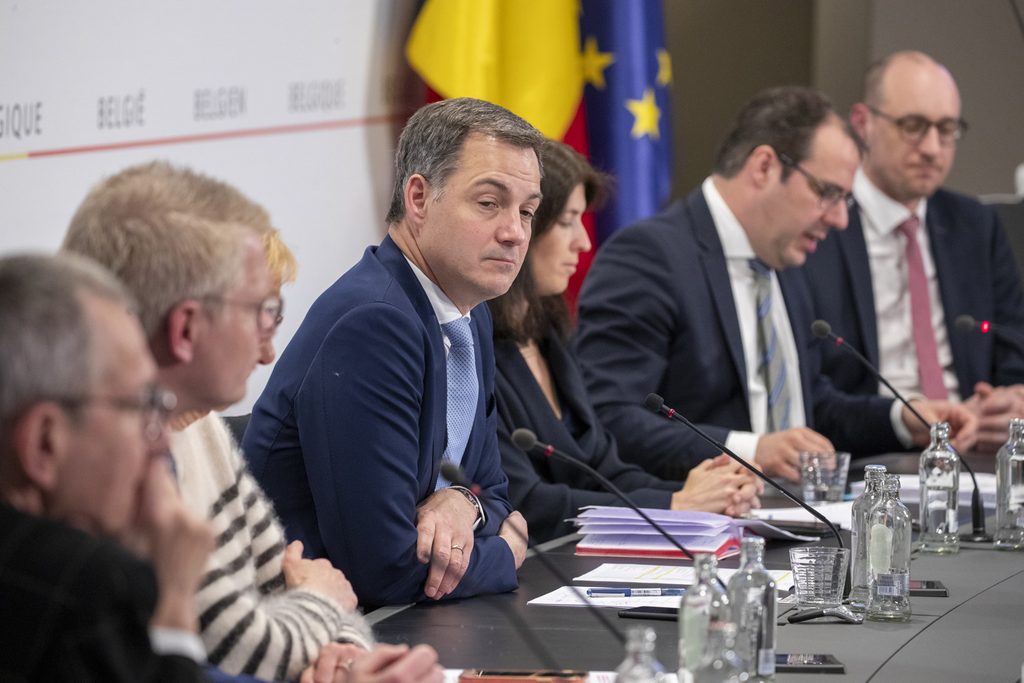The Federal Government was unable to reach an agreement on tax reform after discussions on the topic became ensnared with disagreement among the governing parties.
A snap meeting was called on Tuesday evening in an effort to break the deadlock but after lengthy discussions, Prime Minister Alexander De Croo "had to conclude that reaching an agreement was not possible without significantly impacting the budgetary situation," his cabinet announced.
The Government had been eager to push through the reform before Belgium's National Day (Friday 21 July) as it tries to tighten up the country's finances after repeated criticism from international institutions. Clearly unhappy with the outcome of the talks, De Croo was forced to concede defeat but stressed that "the government’s mission remains to reduce the budget deficit and work on a gradual return to balance after three years of crisis."
Discussions had been going on intensively for five weeks, working with a proposal from Finance Minister Vincent Van Peteghem, which would overhaul the current system to provide greater protections for lower and middle-income earners by increasing taxes for higher earners. Nonetheless, the initial proposal was estimated to bring €6 billion in additional revenue to the State but this was later revised down to €2 billion.
Van Peteghem's proposal would lower taxes on labour while maintaining budget neutrality. In other words, it was a question of shifting the burden of taxation onto wealth and consumption, as well as clamping down on certain tax niches. A simplification of the VAT system was also planned, but this meant raising taxation on certain products or services.
Disappointment
The flagship proposal presented in March would have considerably scaled back social security contributions, a measure which would on average increase annual salaries by €835. But in order to make this fiscally viable, sweeping tax reform was needed, which required the assent of all seven coalition partners. "The position of each coalition partner must be respected," the cabinet assured.
After last night's failed discussions, the Finance Minister did not hide his disappointment, ruefully admitting that "not (all government parties are) able to get out of their trenches and show the courage to take decisions in the interests of everyone... Decisions to finally cut taxes for those who work so hard to contribute."
Van Peteghem insisted that the proposals had been fully developed during long and wide-ranging consultations, and insisted that they were "reasonable and balanced."

Vice-Prime Minister and Finance Minister Vincent Van Peteghem arriving for a meeting of Federal Government Ministers, Friday 30 June 2023. Credit: Belga / Nicolas Maeterlinck
What's the hold-up?
Whilst the Kern committee of government ministers devoted many working hours and five weekends to the discussions, opposition was particularly strong among the fiscally-conservative francophone liberal party Mouvement Réformateur (MR). Van Peteghem's frustration with "one party" was echoed by other government partners.
On Monday, MR announced that it did not believe the conditions were right for resuming negotiations and had insisted on carrying out talks after the summer recess – something that Prime Minister De Croo firmly rejected.
Francophone Parti Socialiste also blamed the failure of the proposed tax reform on MR, with Minister of Economy and Labour Pierre-Yves Dermagne saying that MR made demands that went beyond the framework of the government agreement.
Deputy Prime Minister Georges Gilkinet (Ecolo) said that the negotiations were a "missed opportunity to improve our tax system, increasing low and middle wages." He complained that "one of our partners didn't want it, despite the keen efforts of the Finance Minister and Prime Minister."
His sentiments were echoed by Deputy Prime Minister Petra de Sutter, who also pointed the finger: "MR wanted an unfunded exercise that would have made the budget deficit worse." She told VRT on Wednesday that "Six parties could certainly have found an agreement, but one party would not budge a millimetre."

MR chairman Georges-Louis Bouchez has been a persistent challenger from within the Vivaldi government coalition. Credit: Belga / Nicolas Maeterlinck
For its part, MR said that the proposals put "too many taxes on the table" and questioned whether these would benefit all workers, notably the self-employed. The party's proposals included creating another 19,000 additional jobs, which said would be needed to fund the reforms.
"This proposal was not even mentioned. The left didn't want to talk about it," Deputy Prime Minister David Clairnval (MR) complained on Tuesday evening.
Ahead of Tuesday's meeting, Prime Minister De Croo had told Parliament that the deadline for reaching an agreement was 21 July, with a view to adopting measures from 2024. On Tuesday evening, he was forced to acknowledge the failure of the discussions.

